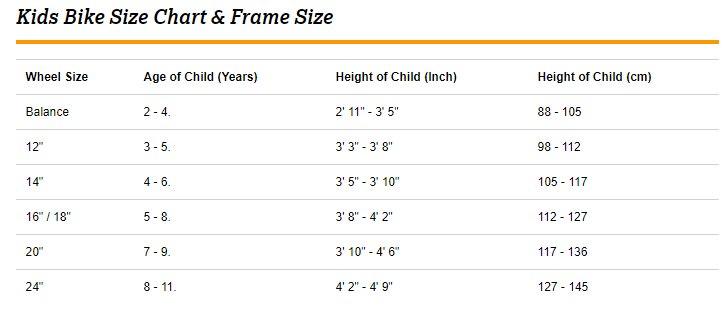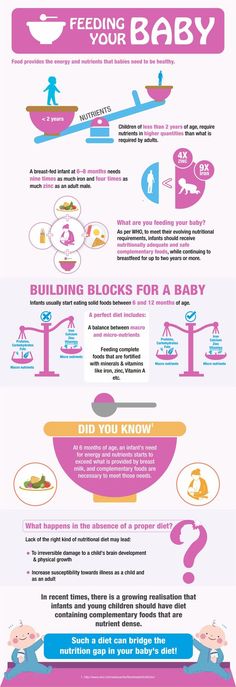How to leave your child at daycare
How to Survive Leaving Your Baby at Daycare for the First Time
This post may contain affiliate links. If you buy through the link, I may earn a commission. Learn More.
Are you sending your child to daycare for the first time?
Then this post is for you.
We’re going to talk about ways to survive this emotional event.
When it comes to fatherhood, motherhood and while we’re on it parenthood I think dropping your baby off at daycare for the first time is one of the hardest milestones in a family.
When we went to drop our son off, I had a lot of emotions and thoughts.
Some were reasonable and rational thoughts and feelings, but many were just irrational.
As a parent, you too are going to approach the thought of leaving your baby at daycare for the first time with a lot of mixed emotions.
- Sadness?
- Guilt?
If nobody else has told, you let us be the first to tell you it’s ok to feel excited about getting some relief from your child.
Even with the relief, there’s probably a lot of anxiety circulating within you.
- “Did I pick the right daycare?”
- “Did I make a mistake?”
- “Is my child going to be ok?”
To get through this difficult time we’ve prepared some helpful tips.
1. Own Your Decision
There’s going to be a lot of people that are going to try to make you feel guilty about your decision.
You would be surprised at the people who are going to try to give you advice.
Friends, family members, in-laws, good parents, bad parents, really bad parents.
All of those “well-meaning people are then going to give you advice that’s going to vary from ok to really dumb.
Even the ones that are giving sensible advice might not be good advice for your family or your circumstance.
Ultimately, you’ve made your decision as a family and what’s best for your family moving forward is daycare. Tell all the naysayers to shut it…
Maybe not like that, but seriously, you need to be comfortable in the decision your family is making.
2. Give Yourself Permission to Cry
This is going to be an emotional time, and there’s nothing wrong with shedding a few tears…or a lot of tears.
While we were dropping off our kid, I caught a glimpse of a mother balling her eyes out.
I saw a dad trying to act all stern while I caught a couple of tears trickling down his face.
Whether it’s before, during, or after you drop your baby off at daycare just let it all out.
3. Don’t Go to Work on Your Baby’s First Day of Daycare
If possible, start your child in daycare the day you don’t have to go to work. This is important for a couple of reasons:
- You could be an emotional mess. Remember when I said it’s ok to cry. It’s ok to cry it out and be an emotional mess. It might not be received as well at work when they’re expecting you to be productive.
- A day to yourself. If you’ve spent the past several weeks or months with your baby not leaving your side, it might be good to have a day to yourself.
 Catch up on a couple of tv shows or movies you’ve been wanting to see.
Catch up on a couple of tv shows or movies you’ve been wanting to see. - Daycare test run. It gives you an opportunity to have a test run and see what it’ll be like taking him or her to daycare.
Having a day or two your not working to figure out a rhythm for how the drop-offs and pickups are going to be is helpful.
It could help make things easier for when you actually start working.
A Daycare test run also allows you to see how well your child is going to handle being in daycare and how well he or she is being treated.
Not working will let you make frequent drop-ins during the day if you want to.
4. When Preparing Baby for Daycare Pack the Day Before
Pick the baby’s outfit, prep the food and make sure the bag you’re going to drop off at the daycare is packed with extra outfits and everything else the night before.
If you try to do it all the day off you’re bound to forget something and be in a rush.
It’s a big day for the family you don’t want any more pressure on you that morning.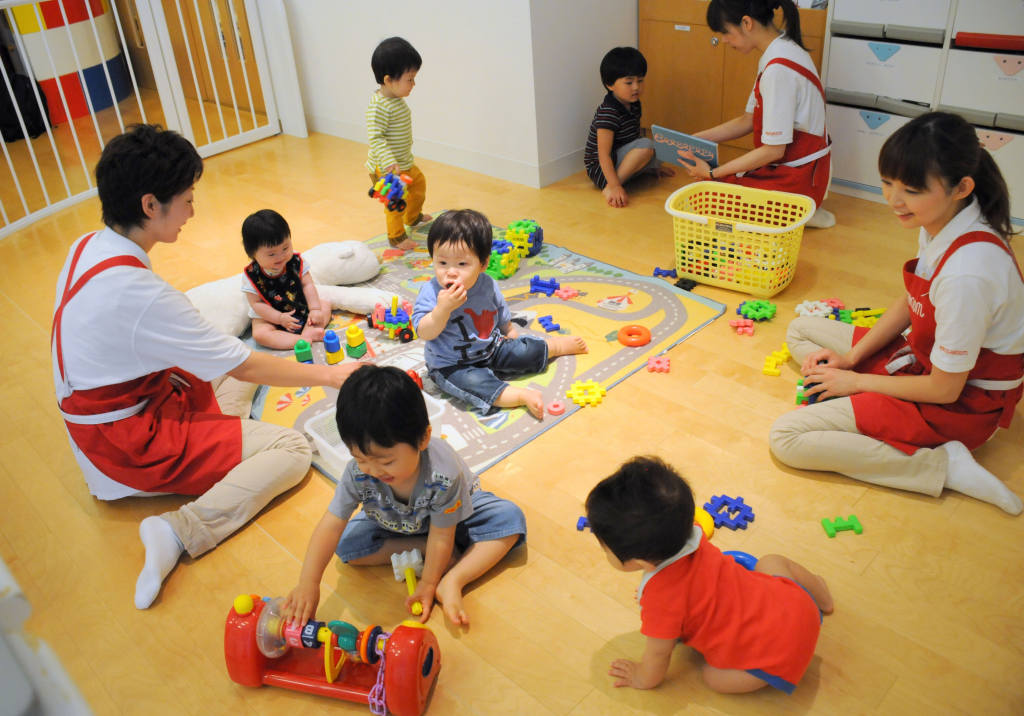
5. Call a Friend Before the Big Day
Do you know another mom or dad who has gone through the same thing? Why not try talking to them?
Talking to other parents who are supportive (the keyword is supportive) can go a long way to reassuring you that everything is going to be alright.
6. Make Sure Your Child Sees You Leave
You might think if I drop him/her off while they’re asleep it’ll make things easier. Or trying to sneak away while they’re distracted.
This practice might come back to bite you because it could cause your child to think you’ll leave them at any time.
You want to avoid this but at the same time…
7….Don’t Delay the Goodbyes
There’s a good chance your child will start crying as you try to leave. Just keep walking.
I know it sounds harsh but delaying the inevitable will only cause more problems.
8. Establish a Relationship with Your Baby’s Care Provider
Connecting with the people charged with taking care of your precious child is important.
For starters, it could mean better care for your child as he or she could fill you in on information going on with your kid.
On the flip side, you could provide them with relevant information they might need to provide better care.
What I mentioned above are all important reasons for having a good relationship with your infant’s daycare provider.
But I’m not really sure those are the most important when it comes to creating a relationship with your childcare provider.
There are two others I believe even more important:
- The first is it’ll give you more of a peace of mind if you get to know your child’s caregiver.
- The second is you should have a good relationship with the daycare workers watching over your child.
9. Be Engaged During Drop-off and Picking Up Your Child
When you’re picking up your child make sure you’re not on your phone but are attentive to what’s going on.
You don’t want to miss anything important your child’s caregiver might have to tell you.
10. Be Engaged with Your Child Immediately After Pickup
Your child’s been away from you for an extended period. When you pick them up show them some attention. A big hug can start reinforcing to your child:
“My mommy and daddy are going to come back for me, and I get a big hug.”
11. Does Your Baby Have a Special Toy
Some children are comforted by a special toy or even a special blanket.
If that’s your child, make sure they have it with them (assuming the daycare allows it).
12. Check Your Baby Before You Hand Them Off
If your child has any weird bruises, birthmarks or anything out of the ordinary you want to know that before you hand them off.
Many daycares are required to report any signs of abuse or neglect.
So, if there’s anything that could be mistakenly taken as abuse or neglect you want to make sure to explain it to the daycare workers beforehand.
13. Check Your Baby After You Pick Them Off
This isn’t to say that anything will happen.
But some daycares have gotten in trouble in the past for neglect or abuse.
The likelihood of it happening to your kid if you’ve done your due diligence is probably relatively small, but you should probably still look them over.
At least until you get comfortable with the caregivers looking after them.
14. Phone a Friend After Dropping Your Baby at the Daycare
I mentioned earlier talking to other parents beforehand can be beneficial.
Talking to them afterward can be just as helpful. If they’ve been through it, they may be able to reassure you everything is going to be ok.
(Once again make sure it’s parents who are SUPPORTIVE)
Conclusion
Hang in there mom and dad your baby’s going to daycare.
Take Deep Breaths and be reassured that many parents have been through this milestone before you (and have done just fine) and many will come after you.
Grab some coffee and tissue paper when you hit the road.
Are there any other tips parents should know about leaving their child in daycare for the first time?
Don’t forget to share the article so we can help more parents.
P.S. If you’re looking for more daycare articles checkout
- Check out the article on the pros and cons of daycares.
- Also, make sure you know when you should switch daycares.
- If you do need to switch daycares read our guide on finding good daycare centers.
273 Shares
8 tips for an easier daycare drop-off for both parent and child
Is your baby or toddler headed to daycare this fall? If so, you might be feeling a little apprehensive about how your child will handle the move away from the comforts of home — and it’s likely you’re going through a bit of separation anxiety as well.
“With the first, it was like someone was just ripping my guts out,” says Heather Wittenberg, a mom of four and a child psychologist who specializes in the development of babies, toddlers and preschoolers.
That gut-wrenching feeling is natural, says Wittenberg.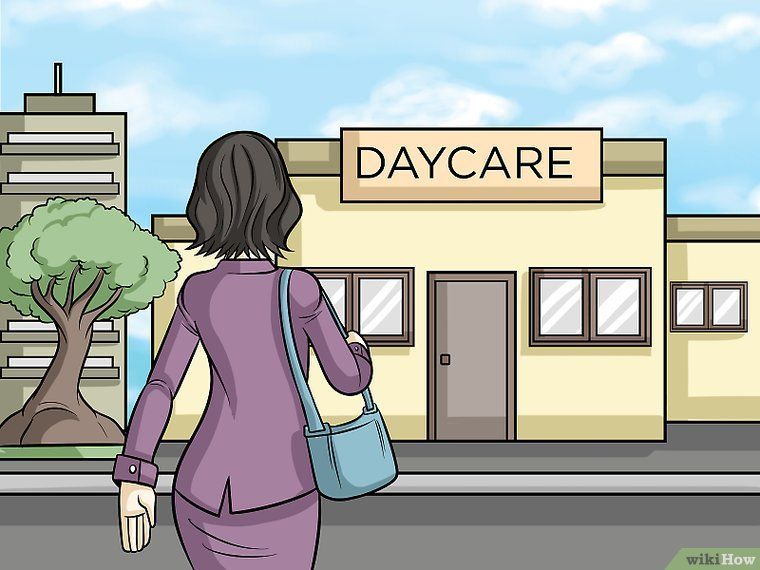 But parents shouldn’t fret. Kids often adapt quicker than we expect, and attending a daycare where your tot can interact with new kids, other people and new experiences can be a good thing.
But parents shouldn’t fret. Kids often adapt quicker than we expect, and attending a daycare where your tot can interact with new kids, other people and new experiences can be a good thing.
“We know from the research that a good daycare is very positive for your baby’s growing independence, learning and socialization,” Wittenberg says.
But to make that leap, we’ve rounded up a few tips to smooth the transition to daycare for both parent and child.
Bring something famliar from home -- like a stuffed animal or blanket -- can help kids with daycare transition.ShutterstockFor the child
1. Bring something familiar.
A reminder of home will make those first few trips to daycare a little easier and provide comfort on difficult days. Wittenberg recommends “anything that smells like home” for babies. That might be a lovey, blanket or mom or dad’s T-shirt or other clothing item. A laminated family portrait that an older child can hold onto can help too.
2. Create a goodbye ritual.
Jennifer Davis, the head teacher of a 2-year-old class at Michigan State’s Child Development Lab and child care facility, recommends families create a consistent goodbye ritual to create a fuss-free drop off. That might mean giving a high-five, saying, "I love you," or a kiss on both cheeks — whatever feels natural to the parent and child. “Make sure you do the same routine each time, so your child knows what to expect,” she says. This daily sendoff helps set a “limit for yourself too,” so you won’t be tempted to linger at the door, making the goodbye harder for you both.
3. Talk it through.
Even the youngest babies will benefit from parents talking through what this new thing called daycare is going to be like, says Wittenberg. For example, you can say, “Starting tomorrow, we’re going to drop you off at so-and-so’s and there are going to be other babies there, and you’re going to have lunch and play with these toys, and then after naptime and snack, I’m going to come pick you up. ”
”
“The baby is picking up on the cadence and the emotional tone and they’re going to get a sense of reassurance,” says Wittenberg. “It gives them a sense of predictability and that everything’s going to be OK.”
Repeat the story once daycare starts for continued reassurance. Reading a picture book about going to daycare is another option, as is sharing a picture of the teacher or classroom.
4. Try a gradual start.
If possible, let your child ease in to daycare by starting him off with a part-time schedule.
“The ideal transition into daycare is one that is gradual, so maybe you’re going with them for an hour one day, and the next day, you’ll leave them there for 20 minutes to play while you go get a coffee,” says Wittenberg.
Many daycare providers will recommend a similar gradual start, beginning with either a couple of half days or starting on a Thursday, rather than Monday, so the child or baby doesn’t immediately plunge into a five-day-a-week, full-time schedule.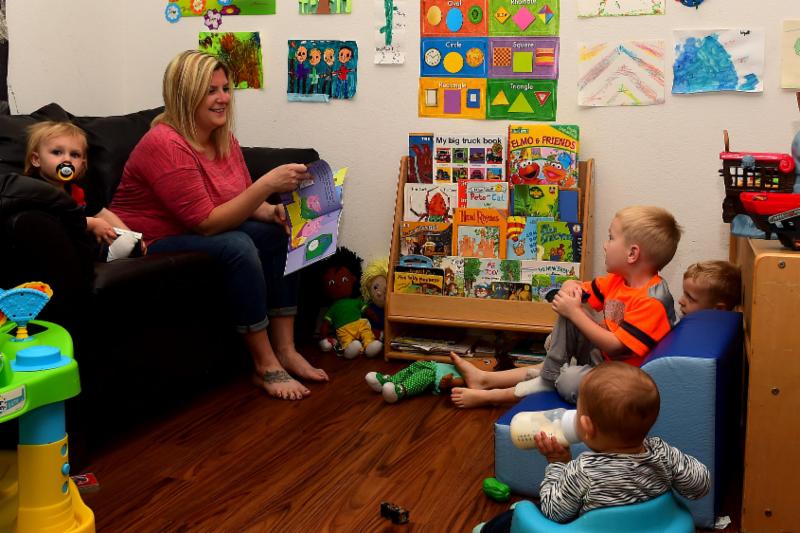
For the parent
5. Do your research.
Every working parent has likely read a daycare horror story or two in the news, making our fears about sending kids into the arms of strangers that much harder to face. Both Wittenberg and Davis recommend putting in the hours to research the best provider for your family. Ask plenty of questions like, “Is your staff CPR trained?” and make sure they’re readily providing answers that assuage those fears.
If you’ve “done your due diligence picking the right place,” including observing the staff in action, “then you can tell yourself the rest of it is your normal parent anxiety,” says Wittenberg.
Don’t be afraid to trust “that gut feeling you get when you walk in,” adds Davis.
6. Create a night-before checklist.
Daycare veterans will likely tell you one of the hardest things is actually just remembering to pack all that stuff! Babies need bottles filled and labeled, bibs, pacifiers, crib sheets and more, not to mention diapers, wipes, extra sets of clothes and possibly lunches and snacks — oh, and don’t forget the check.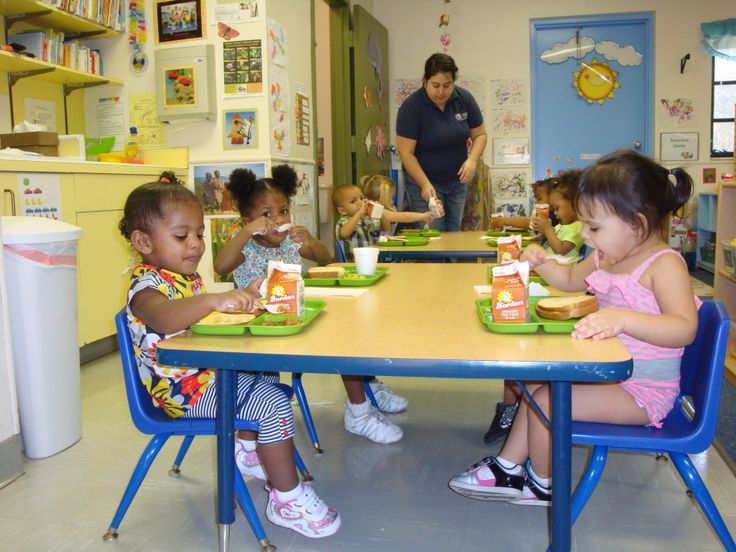
Post a daycare checklist near the front door or on your phone to help remember daily items, but also seasonal stuff like sunscreen and hats or boots and hats and mittens, advises Davis. Pack everything the night before and you might just minimize a bit of that morning chaos, improving everyone’s mood!
7. Do regular check-ins.
Letting someone else care for your baby can make many parents feel a loss of control. You might worry about how much they’re sleeping or wonder who their favorite friend is at daycare. Foster a rapport with the provider to make asking such questions easier. It’ll provide a better glimpse into their new world away from home — hopefully one that makes you both happy. “It goes back to communication,” says Davis. “At pickup and dropoff, you can have some of these conversations with the teacher.”
Don’t be afraid to ask the daycare for advice on how to ease this transition, says Wittenberg. “Daycare providers are just a wealth of knowledge,” she says. “Good ones will have ‘been there, done that,’ and will be able to walk you through some recommendations.”
“Good ones will have ‘been there, done that,’ and will be able to walk you through some recommendations.”
8. Expect some tears.
It can take anywhere from one day to four weeks, depending on their temperament, for a child to adjust to daycare, says Wittenberg. Until then, you might see a few tears upon pickup.
“The kid has been saving it up all day. Everyone needs to decompress after a facing a new social situation and your baby can’t do it any other way but crying,” says Wittenberg. “It shouldn’t make you question your decision unless it goes on.”
Those tears are also an important milestone for growing children as they learn to adapt to different social situations where there might be different rules than at home. “It really helps them with flexibility and adaptation,” says Wittenberg.
4 mistakes parents make when adapting their child to kindergarten
Is your child going to kindergarten this autumn? If so, you probably want your child to accept the changes in his life as calmly as possible, get along with caregivers and other children, and go to kindergarten every morning with joy and without whims.
But often parents do not behave quite correctly and involuntarily prevent the child from adapting to kindergarten. How does this happen and how to avoid the most common mistakes?
For many years of my psychological practice, every autumn parents turn to psychologists, whose children have difficulty adapting to kindergarten.
In this article we will tell you about the four most common mistakes that 90% of parents make when sending their child to kindergarten. Because of these mistakes, the baby, as a rule, develops a negative attitude towards the kindergarten, fears and anxieties, and adaptation is delayed for many months.
Mistake No. 1: Mom's disappearance from kindergarten
When a mother comes to kindergarten for the first time with her child, the child is often relaxed and interested in what he sees. The fact is that he has not yet had the experience of being in the garden without his mother. That is why children often stay in the kindergarten quite cheerfully on the first day, and on the second and third days they already go with resistance.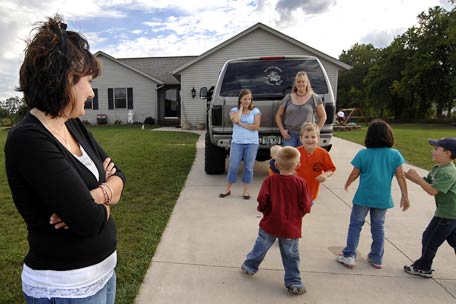 As we know, it is easy to attract the attention of a small child with something new and interesting. Therefore, the baby boldly moves away from his mother and is fond of new toys and children in the group. Most likely, he has already heard from his mother more than once that his mother will leave him in the group, but in his mind, while his mother is waiting for him in the corridor. Or maybe he forgot that mom was going to leave.
As we know, it is easy to attract the attention of a small child with something new and interesting. Therefore, the baby boldly moves away from his mother and is fond of new toys and children in the group. Most likely, he has already heard from his mother more than once that his mother will leave him in the group, but in his mind, while his mother is waiting for him in the corridor. Or maybe he forgot that mom was going to leave.
And here is what happens. Mom is very happy that the child is interested in the game, and quietly, so as not to “scare” him, runs away without saying goodbye to the child and not informing him that he is leaving. Now imagine how a small child feels, whose mother suddenly disappeared for no one knows where, without saying goodbye, and it is not known when she will come and whether she will come at all. For a child, this is like getting lost in a huge supermarket. And even if the 10 kindest people calm the baby and offer him sweets and toys, he will be terribly scared, seized with fear and anxiety.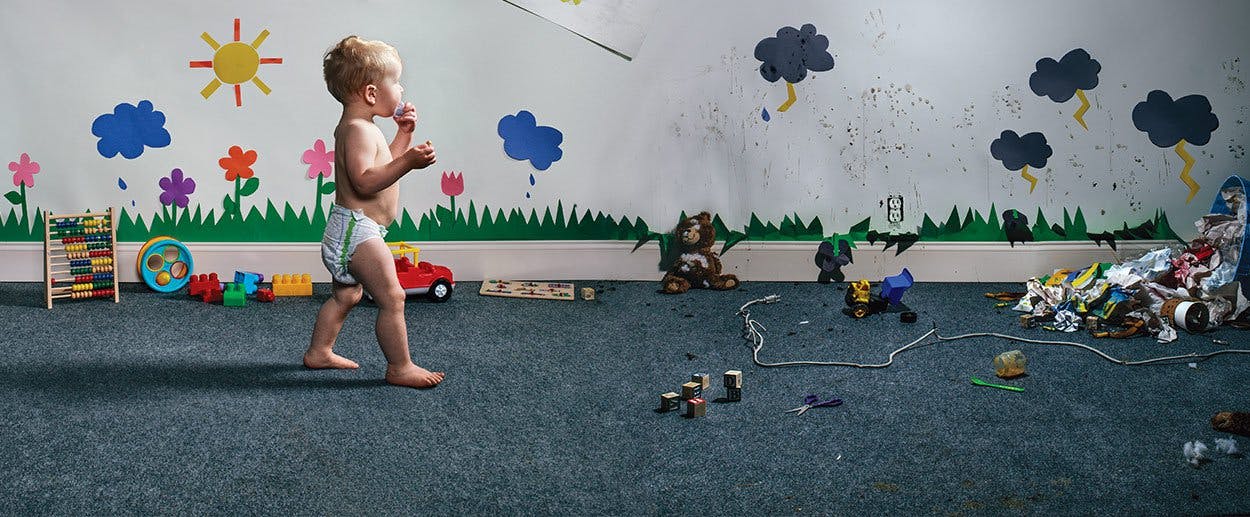 Even if you have told your child many times that he will be alone in kindergarten, without his mother, never leave unnoticed.
Even if you have told your child many times that he will be alone in kindergarten, without his mother, never leave unnoticed.
The child has a feeling that now the mother can suddenly disappear at any moment of his life without warning or saying goodbye to him, that is, he can simply lose his mother. And he literally “sticks” to her both psychologically and physically for many months, afraid to lose sight of her. In many cases, the kindergarten simply has to be postponed for at least six months, because the child falls into hysterics at the slightest mention of the kindergarten, not to mention the fact that he goes there.
Mistake No. 2: Long stay of the child in kindergarten
Some parents think that it is better to leave the child immediately for half a day or the whole day, so that he quickly gets used to the children and the caregiver. This is a mistake.
Kindergarten visits should be started gradually. There are different visiting schemes that psychologists recommend to follow.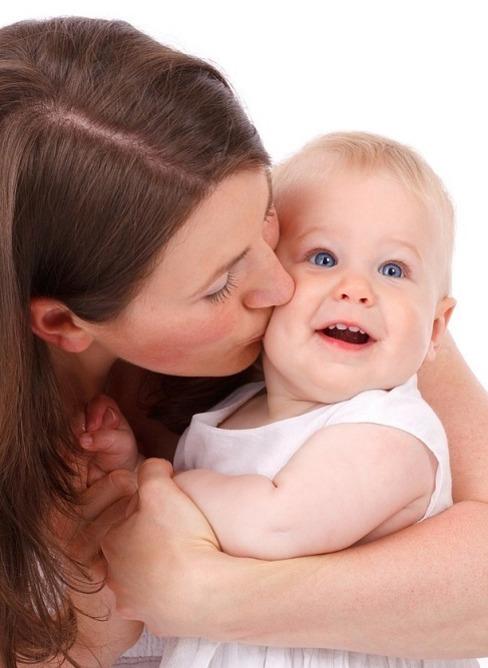 The general idea is this: first come and walk on the same playground where the group walks, then bring the child to the group for 30 minutes - 1 hour during free play activities and wait for the child in the corridor and then pick it up. Gradually, the child gets used to the children, and to the teacher, and to the environment. Then you can leave it alone for 1-2 hours, then from morning until lunch, then with lunch, then pick it up after the walk. After a while, leave for lunch and pick up, then leave for daytime sleep and pick up. Then leave for the whole day. There are no clear guidelines for how long each stage should last. You need to look at the well-being of the child and at your maternal intuition.
The general idea is this: first come and walk on the same playground where the group walks, then bring the child to the group for 30 minutes - 1 hour during free play activities and wait for the child in the corridor and then pick it up. Gradually, the child gets used to the children, and to the teacher, and to the environment. Then you can leave it alone for 1-2 hours, then from morning until lunch, then with lunch, then pick it up after the walk. After a while, leave for lunch and pick up, then leave for daytime sleep and pick up. Then leave for the whole day. There are no clear guidelines for how long each stage should last. You need to look at the well-being of the child and at your maternal intuition.
Mistake #3: Wrong daily routine before the child goes to kindergarten
Many parents do not think about how the child's daily routine today corresponds to the daily routine that will need to be followed when kindergarten begins. It will be extremely difficult for a child who is used to going to bed after 22.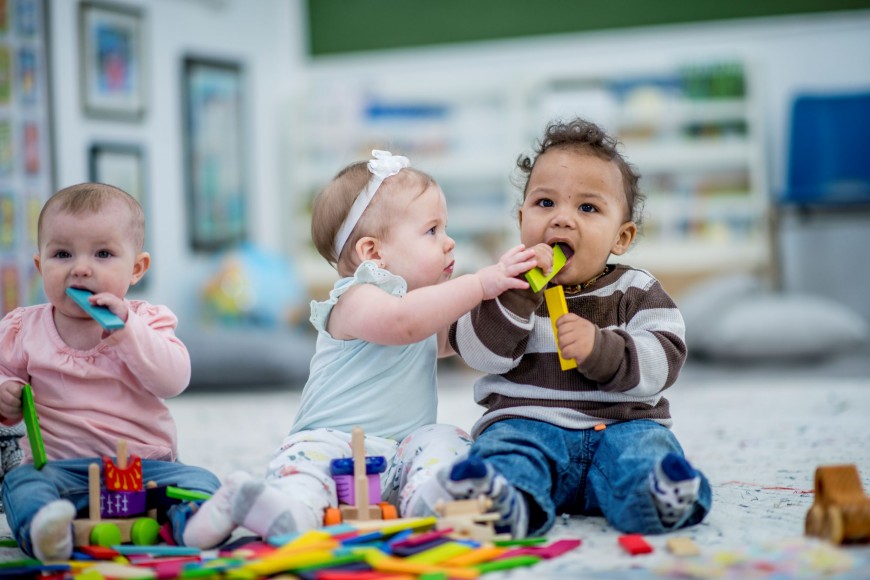 00 to wake up at 7 in the morning. And in the kindergarten, as a rule, you need to get up very early.
00 to wake up at 7 in the morning. And in the kindergarten, as a rule, you need to get up very early.
Do you remember how your baby feels when he does not get enough sleep? He rubs his eyes, is capricious, does not understand what he wants, becomes whiny. Children whose parents did not transfer to the kindergarten mode of the day in advance are immediately visible in the group in the mornings in the first days. They are whiny and irritable, painfully perceive everything that happens around.
Also, parents usually do not introduce their child to the kindergarten, group, playground and teacher in advance, or do it incorrectly.
The way a child feels during the first days in kindergarten leaves an imprint on all his subsequent attitude towards this place. Remember the saying: You never get a second chance to make a "first impression." This fully applies to kindergarten.
In order for your child's first experience in kindergarten to be colored with positive colors, do not be too lazy to transfer your child to the correct mode in advance. Then he can wake up easily and go to the group in a good mood!
Then he can wake up easily and go to the group in a good mood!
It is also bad when the start of kindergarten for a child is combined with some other serious changes in his life. For example, a mother immediately goes to work, moving to another apartment or city, changing or leaving a nanny, the birth of another child, divorce of parents, etc.
Mistake No. 4: Quick preparations for kindergarten
This error partly echoes the previous one. Since it is a pity for parents to wake up the baby and they want him to sleep as long as possible, they wake him up almost “back to back” by the time when he already needs to go to the kindergarten. As a result, the preparations turn out to be nervous, hasty, the mother does not have time to give the baby the attention and tenderness that he needs, especially when he is still basking in bed. The child only hears: “Come on soon”, “Come on faster”, “We are late for kindergarten”, “Let's talk later”, etc. Often the baby in the morning still cannot think well and the mother gets annoyed, raises her voice and the whole morning turns out to be chaotic and conflicting. The mood is spoiled for everyone, and the child goes to the kindergarten in upset feelings, like the mother, who no longer has the moral strength to say some kind parting words.
The mood is spoiled for everyone, and the child goes to the kindergarten in upset feelings, like the mother, who no longer has the moral strength to say some kind parting words.
Therefore, wake up yourself and wake up the baby in advance so that you have enough time for unhurried preparations so that you can pay attention to the baby while he is in bed - give a massage, stroke the legs and head, sing a song, tickle, kiss and other gentle words and actions. All this is so important for a good mood for both of you! Go to the kindergarten in advance, too, with plenty of time, so that you are not nervous on the way yourself and can set your child in a positive way.
What is the “Ritual of Farewell” in Kindergarten?
Well, we have sorted out with you 4 common mistakes that you definitely won't make now! I am sure that you will be able to gradually transfer your baby to a new daily routine, you will wake up in the kindergarten and leave in advance, in the group you will leave the child gradually and will always inform him that you are leaving and say goodbye correctly.
Also watch the video "Adaptation to Kindergarten"
P.S. How to prepare a child for kindergarten in advance and start visiting without stress for the child and parents?
We invite you to take the online course "To Kindergarten - No Tears!"
Click to enroll >>>
P.P.S. If you liked this article, please share with your friends by clicking on the social media buttons on the left. And, as always, I will be glad to have your comments on this article
Read also:
First days in kindergarten | Entering Kindergarten
Dear parents, we, the employees of the kindergarten "Aistenok" with great joy are waiting for your kids in our wonderful institution. We will be glad if you listen to our recommendations so that the first steps to kindergarten are easier and more fun for children.
We will be glad if you listen to our recommendations so that the first steps to kindergarten are easier and more fun for children.
Teach your child by the age of 2 with the help of an adult to be able to:
- eat independently, hold a spoon confidently;
- inform an adult about the desire to go to the toilet, sit on the potty;
- wash hands, face, use a towel;
- to use a handkerchief;
- partially dress, undress;
- play with toys;
- communicate with children and adults.
Attention! The child must be weaned from the pacifier, diapers, motion sickness before going to bed.
Basic rules for the adaptation of the child
Children are admitted to kindergarten from 7.15. until 8.15.
It is very important to bring the child at this time. Why?
Later the children have breakfast. It is impossible to leave breakfast to a late child, as the food is windy and cools down.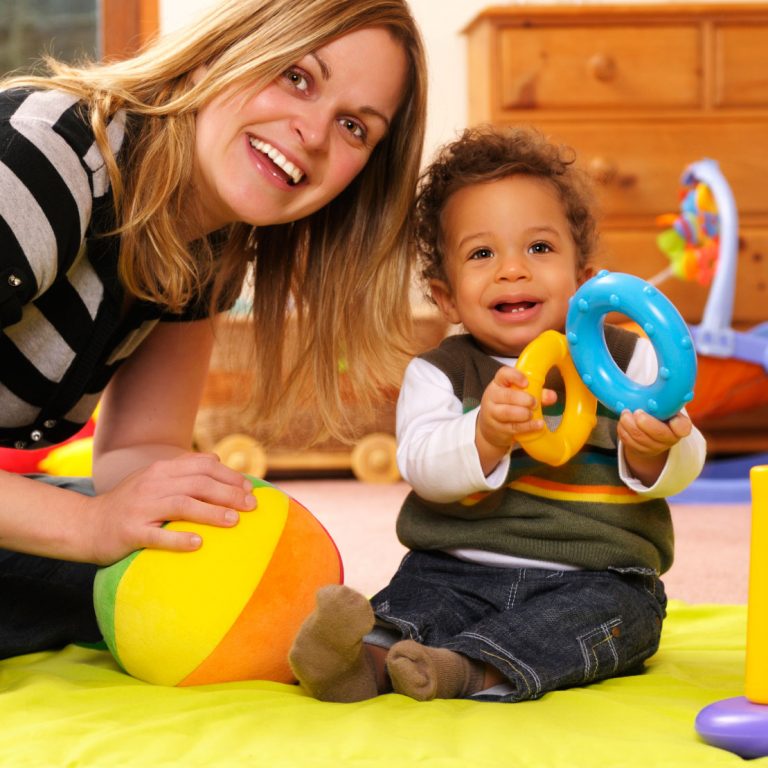 It is necessary to wash the dishes in a timely manner after the children eat. The workers of the group proceed to the next daily work and it is very difficult at this time to provide individual attention to a late child.
It is necessary to wash the dishes in a timely manner after the children eat. The workers of the group proceed to the next daily work and it is very difficult at this time to provide individual attention to a late child.
From 8.15 the head nurse makes rounds of the groups, notes the presence of the child in the kindergarten and “sets” him for food the next day.
If, nevertheless, your family has important reasons for being late for kindergarten every day, then go to the head of the kindergarten and conclude an addendum to the contract with him, where you fix this need.
- In the first week, it is recommended that the child be in the group from 8.00 to 11.00, gradually adding time, but not leaving the baby to sleep. This week, if necessary, the baby can be in a group with mom and dad.
- In the second week, try to leave the baby to sleep, but do not rush if the baby is having a hard time getting used to kindergarten.
- In the third week, we recommend picking up the child after sleep, after an afternoon snack.
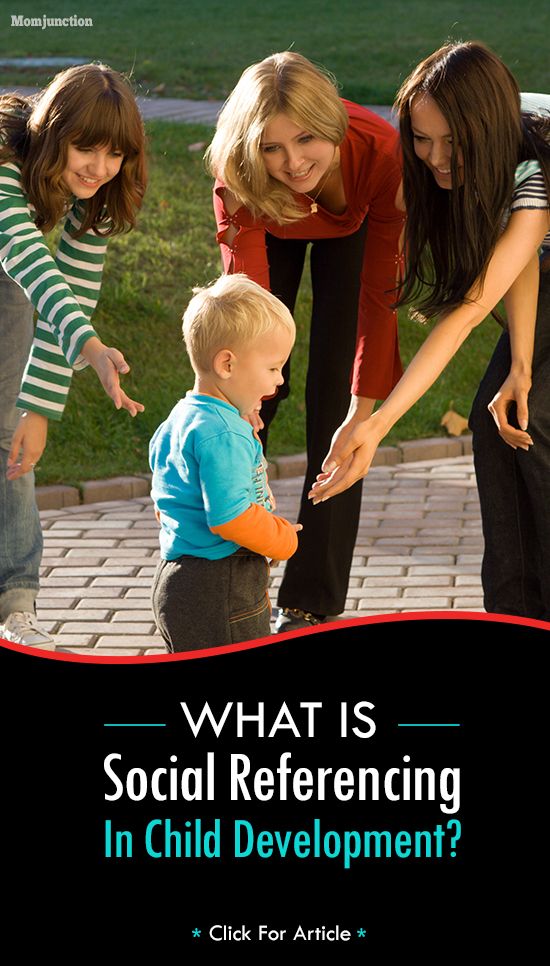
- From the fourth week, the baby can be left in the garden for the whole day.
Attention! At home during the adaptation period, treat the baby more tolerantly and attentively. If you have any anxieties and doubts related to kindergarten, do not discuss them in the presence of the child, but be sure to share all your concerns with the educators and the educational psychologist.
Important rule!
Healthy children come to kindergarten!
If the child is ill, you can leave him at home, notifying the teacher before 8.30. Without a certificate from a doctor, you can be absent from the garden for 5 (five) working days. Be sure to notify the teacher or nurse on the eve before 12.00 that the child goes to kindergarten tomorrow.
After a long absence (more than 5 days), you must bring a certificate from a pediatrician.
If kindergarten employees suggest that you take your child out of the kindergarten for treatment, and you think that the child is healthy, then visit a pediatrician together with the child.


